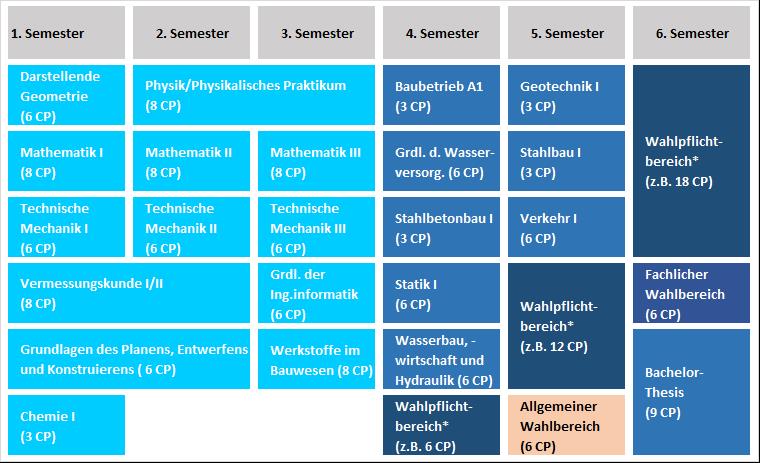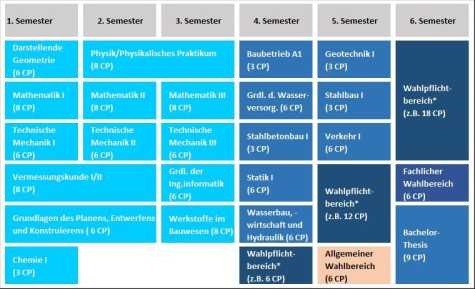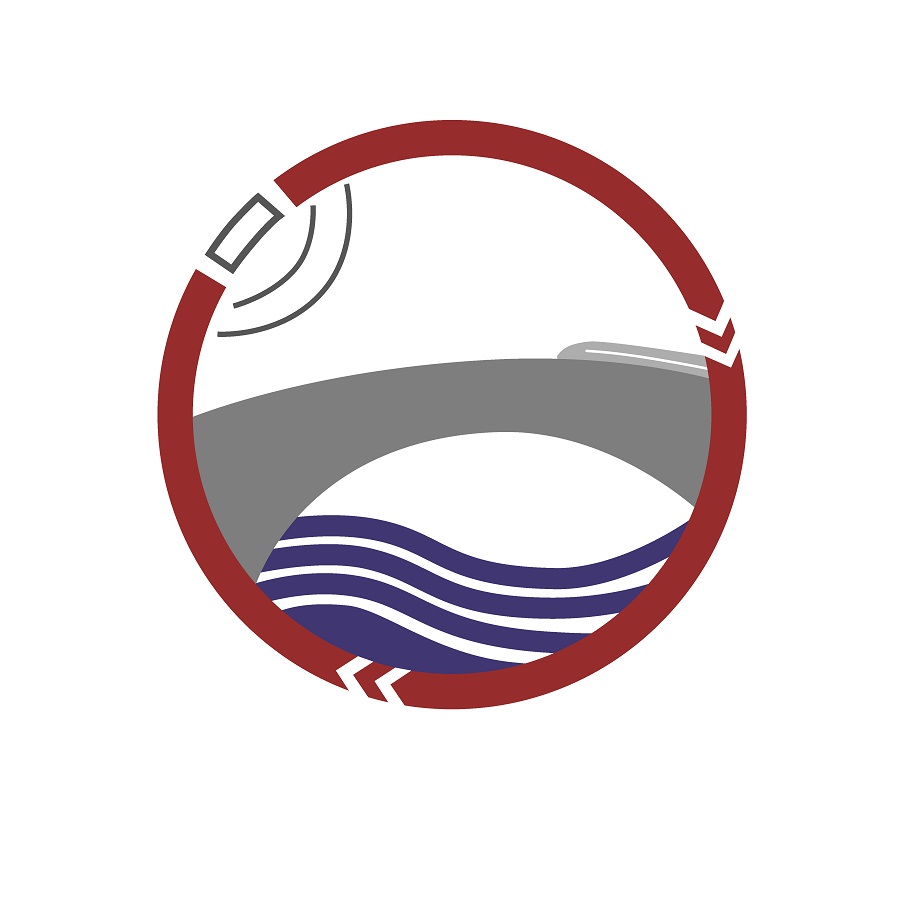down to earth and out of the box
Graduates of the Bachelor's programme in Civil Engineering and Geodesy are qualified for a scientifically oriented professional activity in selected fields of civil engineering and geodesy.
Structure of the study programme
The Bachelor of Science in Civil Engineering and Geodesy is a six-semester course of study comprising 180 credit points (CP – Credit Points).It is subdivided into the basic course of study (Structure of the course of study ) (this includes a compulsory and an optional part), in which basic scientific and technical knowledge is taught, and the specialised course of study, in which students acquire specialist content from various profiles for a subsequent Master's course or their first professional activity.
The programme is divided into the following main components:


At the end of their studies, students show with their Bachelor's thesis that they can independently work on a problem from the field of civil engineering using scientific methods.
You can find details about the programme in the Study Regulations and the Module Handbook, which you can find on the download page of the Office for Student Affairs . The study and examination plans are also stored there.

Student Advisory Service
You will have a mentor at your side who will support and advise you in this matter. This will make your individual study plan a success.
Application and admission
Information on application and admission can be found on the main pages of the TU.


